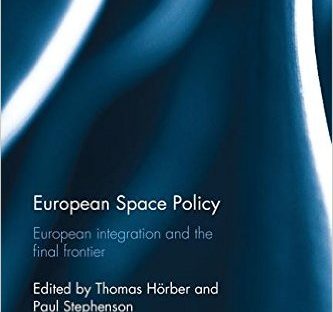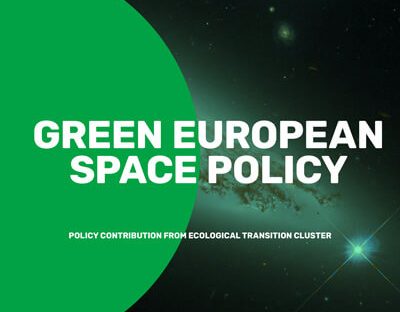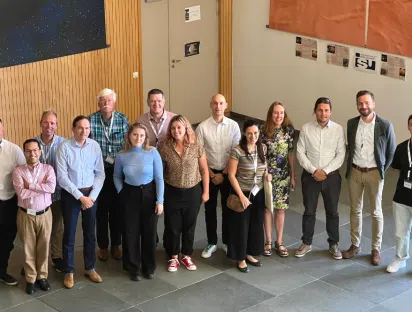New worlds, new orders
Earth's population is still a long way from becoming an interstellar civilisation - apart from a few lucky astronauts, humanity has never left its home planet. Yet the importance of space in the 21st century is immense. In some ways, life (or survival) on Earth depends on space, as space exploration plays a significant role in the future of humanity. Fighting climate change with satellite imagery, using space resources, and exploring space for potential human habitats are just a few examples of the growing importance of space. Some scientists even believe that space exploration could reshape relationships on Earth and establish new orders. Therefore, the study of space in the social sciences should also be seen as an exploration of humanity's potential future.
Space exploration is often compared to the discovery of the "new" continents at the beginning of the modern era. While this comparison is controversial, it highlights analogies that remain relevant today.
Then as now, three criteria are required to make such world-changing discoveries:
- political will,
- pioneering achievements, and
- appropriate tools and technologies.
But the analogy is also a warning. In particular, the commercialisation of space and the possible colonisation of new habitats being pursued by some actors hold, as in the past, enormous potential for conflict.
War and peace
In the context of increasing global conflict on Earth, humanity seems to be facing a similar choice in space: war or peace? This question is particularly pressing in space because of increasing militarisation and armament. The question of whether space will be used for conflict or for peaceful purposes also reflects a broader choice between different societal approaches to the exploration of new territories. On the one hand, there is the desire to conquer, occupy and exploit newly discovered environments, leading to conflict. On the other hand, there is the prospect of peaceful exploration of unknown places, where curiosity, creativity, solidarity and the spirit of discovery would guide human action.
In this choice between war and peace, two scenarios can be outlined.
In the first, space could, through peaceful use and international cooperation, become a medium that allows humanity to realise its future and fulfil the utopias that we know.
In the second, war continues, leading to a repetition of the conflict-ridden history of humanity that we thought we had left behind, this time extending those conflicts to other planets.
A giant leap
The hope is that in the face of the vastness of space, people will realise that we are indeed small, and that in space, nationality does not matter. The first priority in space is survival, which is not an easy task on its own; then comes exploration and discovery, which cannot be done alone; and finally, hopefully, this will lead to the building of a good interstellar society, which also cannot be built alone.
The first humans to venture into space will undoubtedly be ambassadors, but of what? Of humanity, ready to take the next giant leap in its development? The choice is ours.
Article originally published in German on the Schader-Stiftung blog: « Krieg und Frieden im Weltraum » in the context of the 16ᵉ ESSCA Space Policy workshop « Towards a Mon Village? », organised on 18 and 19 March 2024 in collaboration with the Schader-Stiftung and the IWU in Darmstadt, Germany





